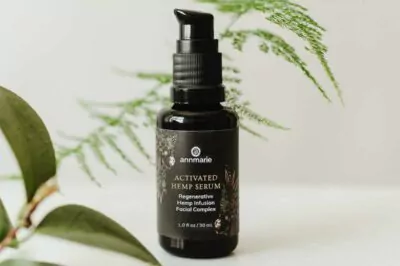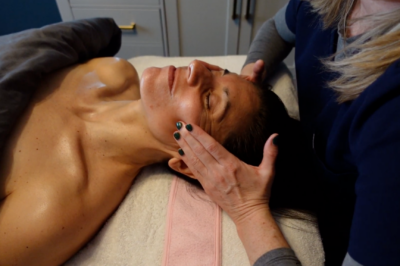Table of Contents[Hide][Show]
Looking for more ways to nourish your skin and show it some love? Look no further than vitamin C powder—an amazing ingredient that helps improve your complexion. Vitamin C is a skin care staple, guarding the skin by forming a protective barrier from the elements. It also does a wonderful job brightening and evening your skin tone.
Usually, the skin requires a lot of vitamin C because this ingredient helps the skin stay healthy-looking and in tip-top shape. Intense vitamin C deficiency can even result in certain skin diseases like atopic dermatitis or porphyria cutanea tarda (PCT). Because of vitamin C’s immense advantages, you’ll find this ingredient in many forms across most serums and elixirs.
But you may have noticed how vitamin C in powder form has gained popularity—despite being new to the market—because of its shelf-stable quality and how well it reduces aging signs and nourishes the skin. Now, let’s dive into the benefits of this medium.
Vitamin C Powder Benefits for Skin Care

Vitamin C powder has numerous benefits for your skin, some of which include:
Antioxidant-rich
Vitamin C contains high quantities of antioxidants. When you use vitamin C powder, your skin will store it. This later enhances the skin’s defensive properties, keeping it protected from environmental stressors so your skin can stay resilient and happy.
Brightens skin
Vitamin C inhibits tyrosinase, which converts the amino acid tyrosine into melanin—the pigment that gives your skin color. Applying vitamin C to your skin helps brighten your complexion and is especially effective for targeting the look of dark spots and evening your skin tone—which happens to be one of the most significant ways to improve the skin’s visual texture.
It may help combat the look of wrinkles and the effects of aging

When someone suffers from vitamin C deficiency, it often results from impaired collagen synthesis. When you offer your body more vitamin C topically, it helps synthesize the collagen—responsible for keeping the look of wrinkles and other signs of aging at bay (1). Learn more about the benefits of using collagen to understand how this nutrient beautifies the skin.
Replenishes vitamin E
Vitamin E contains antioxidants, and its primary role is to prevent your skin from suffering from environmental stressors. The levels of vitamin E decrease the more you expose your skin to the sun. So, using vitamin C will help replenish the loss of vitamin E levels that happen on a daily basis (2).
May protect skin against environmental stressors
Every day our skin is affected by many factors, including being negatively impacted by environmental stressors like pollution and prolonged sun exposure. When you use vitamin C powder, it acts as an antioxidant that protects your skin from such harsh elements.
How To Use Vitamin C Powder
The most common way to use your vitamin C powder is to mix it daily with your favorite aqueous-based serum or moisturizer for an instant antioxidant boost. You should use less than a 1:4 ratio of vitamin C to your body lotion or serum. When mixing vitamin C powder with your other skin care products, ensure they’re well mixed so the powder can dissolve into the product properly.
Products that work well with vitamin C:
- A moisturizer
- A weekly face mask
- A serum you’re already using
- A lip balm
These different products will result in various textures and viscosity but will allow you to incorporate your vitamin C powder in many different ways. Research shows that the sweet spot for vitamin C concentration should be at least 8% of the solution to see the benefits and no more than 20% to prevent skin irritations. (Please note: 20% can be quite high and too intense for some skin types, so we recommend slowly starting on the lower end and building up to a higher concentration—and only if your skin responds well after each trial).
Vitamin C Powder Side Effects
Like other skin care products, you may experience side effects when using vitamin C powder. The most common ones include:
- Skin irritation
- Itching
- Redness
- Tingling upon application
You must rinse the product off your face and seek medical attention immediately if you experience an allergic reaction (like hives) upon applying your vitamin C powder. Because vitamin C has the potential for side effects (including in powder form), we prefer to use and recommend the most stable and safest version of it—tetrahexyldecyl ascorbate (THDA). This type of vitamin C does not come in powder form and instead is oil-soluble, which easily blends with other oil-based products. You can learn more about the different forms of vitamin C (like serums vs. powders) or read a general overview on vitamin C serums here.
You can find THDA in our Concentrated Boosting Elixirs, which are perfect for all skin types and easy to integrate into your pre-existing regimen.
Conclusion
Even though seemingly new in the skin care industry, vitamin C powder can be a great option to explore, especially if you love vitamin C products. Unlike vitamin C in many beauty care, where the ingredient renders ineffective after oxidization, vitamin C powder is much more stable, giving you a higher chance of delivering the activated ingredient to the skin.
This means that it will continue to work for your skin as long as you keep it stored in a dark, dry place and add it accordingly to your skin care products like serums or moisturizers.
For more ways to use your vitamin C, find out how to combine this ingredient with a retinol-alternative for next level results!
Frequently Ask Questions
How much vitamin C powder per day?
Aiming for a concentration of 20% or less would be safe. Alternatively, you can do about 1 part powder to 4 parts product or less. You should, however, apply less if your skin tingles or stings upon application. Always perform a patch test before applying the product to ensure your skin responds well.
Can I mix vitamin C powder with my moisturizer?
Yes, you can mix vitamin C powder with your moisturizer for a vitamin C boost and the skin benefits that come along with a high antioxidant punch.
For learning more ways to use vitamin C, you can also follow our detailed guide on how to use exfoliants like AHAs and BHAs with vitamin C for best results.








Leave a Reply